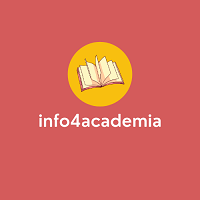Investigation of educational psychology systems, self-efficacy, and student performance : Thematic Content Analysis
Abstract
Keywords
Full Text:
PDFReferences
Arjmandnia, A., Kakabaraee, K., & Afrooz, G. (2012). The Effect of Rehearsal Strategy on the Performance of Dyslexic Student's Working Memory. Procedia - Social and Behavioral Sciences, 46 (1), 2620-2624.
Bailey, J., & Rutledge, B. (2017). The Educational Psychology of Clinical Training. The American Journal of the Medical Sciences, 353 (2), 96-100.
Begeny, J., Levy, R., Hida, R., Norwalk, K., Field, S., & Suzuki, H. (2018). Geographically representative scholarship and internationalization in school and educational psychology: A bibliometric analysis of eight journals from 2002–2016. Journal of School Psychology, 70 (1), 44-63.
Bengtsson, M. (2016). How to plan and perform a qualitative study using content analysis. Nursing Plus Open, 2 (1), 8-19.
Christopher, E., & Shelton, J. (2017). Individual Differences in Working Memory Predict the Effect of Music on Student Performance. Journal of Applied Research in Memory and Cognition, 6 (2), 167-173.
Darolia, R. (2014). Working (and studying) day and night: Heterogeneous effects of working on the academic performance of full-time and part-time students. Economics of Education Review, 38 (1), 38-50.
Dubuc, M.-M., Leheudre, M., & Karelis, A. (2020). Relationship between interference control and working memory with academic performance in high school students: The Adolescent Student Academic Performance longitudinal study (ASAP). Journal of Adolescence, 80 (1), 204-213.
Ferreira, J., Amorim, K., Mäkinen, M., & Moura, G. (2016). The Network of Meanings and Educational Psychology: Theoretical and Practical Possibilities. Procedia - Social and Behavioral Sciences, 217 (1), 501-511.
Frith, E., & Loprinzi, P. D. (2018). Experimental effects of acute exercise and music listening on cognitive creativity. Physiology & behavior, 191, 21-28.
Ishak, I., Jufri, N., Saat, N., Omar, B., Arlin, R., Hazdi, K., & Mohamed, N. (2012). The Study of Working Memory and Academic Performance of Faculty of Health Sciences Students. Procedia - Social and Behavioral Sciences, 60 (1), 596-601.
Jones, S., Fong, C., Torres, L., Yoo, J., Decker, M., & Robinso, D. (2010). Productivity in educational psychology journals from 2003 to 2008. Contemporary Educational Psychology, 35 (1), 11-16.
Keklik, İ. (2011). A Content Analysis of Developmental Psychology Sections of Educational Psychology Textbooks Used for Teachers’ Education in Turkey. Procedia - Social and Behavioral Sciences, 12 (1), 393-398.
Khayyer, Z., Azad, R., Arani, Z., & Harandi, R. (2021). Examining the effect of stress induction on auditory working memory performance for emotional and non-emotional stimuli in female students. Heliyon, 7 (4), 33-46.
Klassen, R. M., & Klassen, J. R. (2018). Self-efficacy beliefs of medical students: a critical review. Perspectives on medical education, 7(2), 76-82.
Kundey, S., Reyes, A., Rowan, J., Lee, B., Delise, J., Molina, S., & Cogdill, L. (2013). Involvement of working memory in college students’ sequential pattern learning and performance. Learning and Motivation, 44 (2), 114-126.
Kuron,Q., Sumual,S.D.M., Tuerah,R.M.S.(2022).Classroom Management in Improving the Learning Outcomes: A Multi-site Study in Bhayangkari Kindergarten and Tondano Bethlehem Kindergarten.Asia Pacific Journal of Management and Education,5(1),1-10.
Lai-Yeung, S. (2011). Teaching Educational Psychology as Both a Required and an Elective Course: Explorations of Students’ Perceptions. Procedia - Social and Behavioral Sciences, 29 (1), 1400-1408.
Martens, M. A., Antley, A., Freeman, D., Slater, M., Harrison, P. J., & Tunbridge, E. M. (2019). It feels real: physiological responses to a stressful virtual reality environment and its impact on working memory. Journal of Psychopharmacology, 33(10), 1264-1273.
Matthews, J., & López, F. (2020). Race-reimaging educational psychology research: Investigating constructs through the lens of race and culture. Contemporary Educational Psychology, 61 (1), 124-141.
Özcan, D. (2010). Relationship between self efficacy and educational psychology course perceptions of pre-service teachers studying at education faculty of NEU. Procedia - Social and Behavioral Sciences, 5 (1), 2372-2378.
Pavlov, Y. G., & Kotchoubey, B. (2022). Oscillatory brain activity and maintenance of verbal and visual working memory: A systematic review. Psychophysiology, 59(5),1-13.
Pluck, G., Villagomez-Pacheco, D., Karolys, M. I., Montaño-Córdova, M. E., & Almeida-Meza, P. (2019). Response suppression, strategy application, and working memory in the prediction of academic performance and classroom misbehavior: A neuropsychological approach. Trends in neuroscience and education, 17(1),1-11.
Plucker, J. A., & Makel, M. C. (2021). Replication is important for educational psychology: Recent developments and key issues. Educational Psychologist, 56(2), 90-100.
Puspaningtyas, M., & Harnani, S. (2021). Education and Technology in Human Capital Management Studies in Indonesia. Tamansiswa Management Journal International, 1 (1), 1-2.
Rusmingsih, D., Widarni, E., & Bawono, S. (2021). Human psychological factors in the success of human capital investment in driving financial performance, case study of the hotel industry in Indonesia and Malaysia. Journal of Business and Public Administration, 12 (1), 69-75.
Turetsky, K., Sinclair, S., Starc, J., & Shelton, J. (2021). Beyond students: how teacher psychology shapes educational inequality. Trends in Cognitive Sciences, 25 (8), 697-709.
DOI: https://doi.org/10.32535/ijabim.v7i2.1601
Refbacks
- There are currently no refbacks.
Copyright (c) 2022 Sri Harnani, Cahya Budhi Irawan, Imro'atul Afriani

This work is licensed under a Creative Commons Attribution-NonCommercial-ShareAlike 4.0 International License.
International Journal of Applied Business and International Management (IJABIM)
ISSN 2614-7432 (Print) | ISSN 2621-2862 (Online)
DOI Prefix: 10.32535 by CrossRef
Published by AIBPM Publisher
JL. Kahuripan No. 9, Hotel Sahid Montana, Malang, Indonesia
Email: journal.ijabim@gmail.com
Phone: +62 341 366222
Website: https://aibpmpublisher.com/
Governed by
Association of International Business and Professional Management
Email: admin@aibpm.org
Website: https://www.aibpm.org/
Licensing Information

The International Journal of Applied Business and International Management (IJABIM) is licensed under a Creative Commons Attribution-NonCommercial-ShareAlike 4.0 International License .













